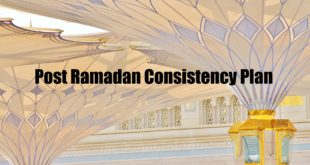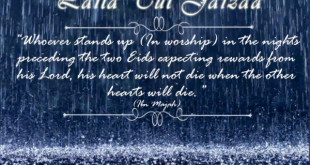From Soweto to Hebron:
Shoks Mnisi Mzolo – Cii News | 04 September 2014/09 Dhul Q’adah 1435
It takes about 16 hours to travel from Soweto’s Diepkloof to Hebron in Palestine’s West Bank. However, for Itani Rasalanavho, a South African visiting this area, Hebron turned out to be a page in history books. That’s decades and centuries ago. Hebron, like all towns with sizeable members of the indigenous Palestinian community, bristles – as parts of its daily routine – with examples of crimes against humanity: Nazism, apartheid, colonialism and barbarism. Palestinians, Rasalanavho concluded, experience humiliation and terrorism every day.
“It was the first time I came here, and I had a picture of what kind of a country it is and what is happening here. But, experiencing it was something different,” said Rasalanavho, in an interview with Sabahul Khair, and adding that the reality (of de-humanising subjugation) – which is emotionally-draining – is far from the ‘picture-perfect’ version that Israel retails to the world, not least the Christian community.
Rasalanavho, a youthful pro-justice and human rights activist now studying law after graduating in international trade, is visiting the Zionist-dominated region as part of the Ecumenical Accompaniment Programme for Palestine and Israel (EAPPI), in turn a World Council of Churches initiative. Meanwhile, in another bid to expel or kill as many fellow Semites, Israeli forces – which enforce apartheid rules and mete out collective punishment – massacred 2,100 Palestinians (including 500 kids) in two month-long terror attacks. The world sighed but moved on.
The young activist was stunned to see not just apartheid and oppression in action but also the notorious Checkpoints, which pockmark the landscape and cause much psychological abuse to the locals. “It was the first time I saw something called checkpoints. I saw so many of them, and high walls that divide the people – the Palestinians and the Israelis. Bear in mind that it’s not just the walls that divide the two but also the psychological barriers… there are just blue and white poles (which prevent Palestinians from) walking across to the other side,” a disbelieving Rasalanavho said, expressing his shock at what he felt was the “complex” and “worst kind of oppression” the world has ever seen.
Children and books are not spared from the checkpoint system, something designed by Zionist apartheid rulers in Tel Aviv to humiliate ethnic Palestinians – a part of the Semitic family. It is an uphill to get books past the Israeli checkpoints.
This is one, but mild, example of how Zionists seek to extend the decades-long psychological oppression by denying education to future generations. Turning to Israel’s dompas system at checkpoints, the EAPPI activist said the measure wasn’t for security reasons but was meant to humiliate the subjugated Palestinians. “They always have to produce their passes every now and then,” he said, adding it was common for the now-inured Palestinians to be kept waiting at checkpoints for hours on end (even when there is rain or snow).
“It’s a sad situation. It’s a situation that the world needs to know about. It’s a situation that the world needs to speak about and crush this kind of a system because we cannot be living in a free and fair society and whereas there are people like this who are being oppressed,” the EAPPI representative told Cii listeners.
Amid the crushing Zionist-driven oppression and its consequent poverty, Palestinians remain personable, resilient and welcoming. Hope that freedom will come and oppression end, said the activist hailing from Soweto, is still pretty much alive in the hearts of the people of Palestine. “They never give up. They’re always looking forward to freedom. They’ve been displaced so many times,” Rasalanavho said. “Beyond that I’ve experienced (their spirit) of Ubuntu. (The Palestinians) are loving, caring and always offering coffee and tea. They offer you food everyday.”
These are the same people who, he explains, can go for weeks without getting paid purely because of their ethnicity. “The most painful thing is that it is becoming normal,” he said. “You are born and grow up in an environment where you need a pass. People have to go to work, you need a work permit. You need a pass. You’re going through a checkpoint. You’re going to be paid a minimal amount. Sometimes there are even worse labour brokers than we face back home because here you can work for a week and on Sunday you won’t have to go back to work because you’ll find out your permit has been cancelled and you haven’t been paid. You won’t see your (agent) anymore. It’s sad.”
Please End Diplomatic Ties with Israel, South Africa
2014.09.04

The war on Gaza may be at a ceasefire stage, but guest contributorSaajida Malvina makes a renewed plea to expel the Israeli Ambassador to South Africa.
On the 5th of August 2014 the President of South Africa, Jacob Zuma received a round of applause in Washington D.C. after he said that expelling the Israeli Ambassador to SA was not going to solve anything. A week ago Deputy President Cyril Ramaphosa reiterated a similar sentiment when he answered the question posed by EFF saying “South Africa is not considering expelling the democratic relations with Israel. We will remain engaged and we will voice our protest.” He added that our country thus reserved a seat at the negotiation table.
These comments left me startled and took me off guard as a South African. South Africa went through apartheid after an Afrikaaner minority ruled us. They believed they were superior to other races and Blacks were meant to serve. People of colour had no right to vote, the Black population were confined to Bantustans and were exploited to do hard labour. There was no freedom of movement and Blacks were required to obtain a permit in order to leave their Bantustans. Those who opposed the policies were brutally attacked, tortured, languished in prison for decades, murdered or assassinated. The ANC and other resistant parties realised that they had to change their tactics and called for economic sanctions and boycott of sports in order to isolate South Africa from the rest of the world. The announcement was made in the 1960’s and grew to a momentum by the 80’s.
In contrast to apartheid here in South Africa, Willie Madisha, former COSATU leader and COPE deputy leader said, “that was a Sunday picnic compared to Israelis oppression of Palestinians.” He explained that apartheid was characterised by killings, disappearances, inferior education and the creation of Bantustans. Apartheid was brutal, but we were not faced with F16 fighter planes, helicopter and gunships or sieges on a city. There were no separate roads like there is for Palestinians and Israelis, or different number plates for both the factions. Neither was a huge wall built which stole more Palestinian land and is against International law. The U.N. has passed hundreds of resolutions against Israel that it has ignored.
How then can the South African government expect Israel to listen to them after they wantonly ignore the UN and International Law? Palestinian civil groups have called on countries to Boycott Divest and employ Sanctions against Israel. As a country who went through apartheid we should set a precedent and end diplomatic ties until equality and justice is served. We forget not our former president and world icon Nelson Mandela who said: “Our freedom is incomplete until Palestine is free.”
Who Is The Real Aggressor: Israel Or Hamas?
2014.09.05

We’ve been so overwhelmed with News coverage on Gaza – death, destruction, and horror that sometimes we just shut off from the statistics. As part Radio Islam’s focus this week – the#KnowYourPalestine campaign, Ebrahim Moosa was inspired to recount Israel’s brutality to us in a way that forces us to sit up and take note.
With such massive casualties and utter devastation all on the one side, just exactly who is the victim, and who is the aggressor ?
On the Palestinian side, nothing and nobody was spared. In the safety of your home, you were bombed (117,240 homes bombed). If you fled to the mosque believing that a place of worship was inviolable and you would be safe there, you would still be bombed (151 Mosques bombed). If you thought that you could escape the danger believing maybe it was due to Islamophobia, and instead took refuge in a Church, it made no difference, you would still be bombed (1 Church bombed).
If you fled to a U.N. Refugee Centre believing that you would be protected from all harm by International Law, still you would be bombed (90 UNRWA schools were bombed in spite of the Israeli military receiving warnings of their co-ordinates over and over again – 12 times in the case of the Beit Hanoun School including four hours before it was bombed, 17 times in the case of the Jabaliya School, and 33 times the co-ordinates for the Rafah School were passed on by the UN to the Israeli military but still it was struck by Israeli fire resulting in a massacre of civilians there).
If you were lucky enough to survive the bombing, and were only maimed and disabled and ended up in a Facility for the Disabled, they would still bomb you there (12 Disabled patients killed on 12 July 2014).
If the ambulance arrived to take you to Hospital, they would bomb the Ambulance as well as the Para-medics (14 Ambulances destroyed, 3 Para-medics killed in one air-strike, 2 Aug 2014).
If you made it alive to the Hospital, your Doctor could be killed (16 Medics were killed by Israeli fire).
If you made it into the ICU, you could still die in there from Israeli shrapnel fired in your direction (2½ year-old baby Ibrahim Sheikh Omar killed by Israeli shrapnel in the ICU of Mohamed al-Durra Hospital, 24 July 2014).
If you survived the ICU and were recovering in the Hospital, you could still be killed (29 Hospitals and Clinics bombed even though the Israeli Military have the exact co-ordinates of every single Hospital and Clinic in Gaza).
And finally, when you were dead and thought you could Rest In Peace, the Israeli Military would follow you to your grave and bomb you there too (11 Cemetries bombed). And it made no difference if you were Christian (1 Christian cemetery bombed).
[Statistics courtesy of Geneva-based Euro-Mid Observer for Human Rights, Switzerland ].
 Jamiatul Ulama KZN Council of Muslim Theologians
Jamiatul Ulama KZN Council of Muslim Theologians





